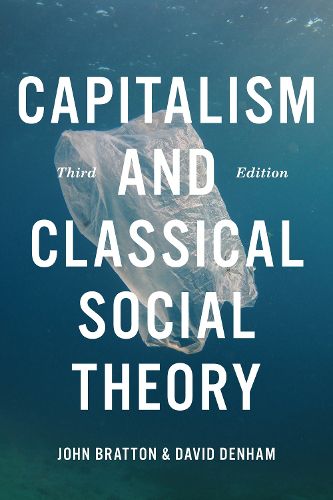Readings Newsletter
Become a Readings Member to make your shopping experience even easier.
Sign in or sign up for free!
You’re not far away from qualifying for FREE standard shipping within Australia
You’ve qualified for FREE standard shipping within Australia
The cart is loading…






In this third edition of Capitalism and Classical Social Theory, John Bratton and David Denham build on the classical triumvirate-Karl Marx, Emile Durkheim, and Max Weber-by extending the conversation to include early female theorists such as Mary Wollstonecraft and Charlotte Perkins Gilman, as well as the writings of W.E.B. Du Bois and G.H. Mead.
Connecting current headlines in the political mainstream to concepts like alienation, anomie, class, gender, race, and the environment, Capitalism and Classical Social Theory sheds light on how classical social theories may be applied and understood within a contemporary context. This revised and expanded third edition features topical discussions of socio-economic shifts in the post-Trump and post-Brexit world and uses original excerpts and additional readings to further contextualize the significance of classical social theory today.
$9.00 standard shipping within Australia
FREE standard shipping within Australia for orders over $100.00
Express & International shipping calculated at checkout
In this third edition of Capitalism and Classical Social Theory, John Bratton and David Denham build on the classical triumvirate-Karl Marx, Emile Durkheim, and Max Weber-by extending the conversation to include early female theorists such as Mary Wollstonecraft and Charlotte Perkins Gilman, as well as the writings of W.E.B. Du Bois and G.H. Mead.
Connecting current headlines in the political mainstream to concepts like alienation, anomie, class, gender, race, and the environment, Capitalism and Classical Social Theory sheds light on how classical social theories may be applied and understood within a contemporary context. This revised and expanded third edition features topical discussions of socio-economic shifts in the post-Trump and post-Brexit world and uses original excerpts and additional readings to further contextualize the significance of classical social theory today.